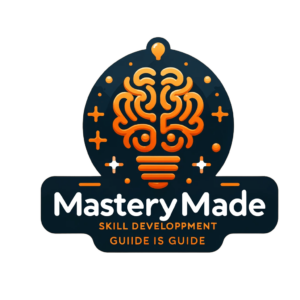As we navigate the ever-evolving professional landscape, we recognize that industry-specific certifications have become more than mere educational milestones. These certifications are a testament to a professional’s commitment to professional development and staying abreast with the latest industry dynamics. At the core, certification programs are designed to facilitate career advancement and foster a competitive edge in various industries. Today, we’re here to explore how these key credentials can serve as powerful catalysts for career growth and success.
Join us in uncovering the significance of these credentials, and let’s delve into how these invaluable assets can carve paths to new opportunities and professional milestones.
Key Takeaways
- Certifications reflect a dedication to ongoing learning and professional prowess.
- They are pivotal in staying current with evolving industry standards and practices.
- Certification programs provide a structured approach towards skill enhancement.
- These credentials are integral to proving expertise and gaining a competitive advantage.
- Strategically chosen certifications lead to tangible career advancement.
- They are essential for meeting the demands of a dynamic job market.
- Having the right certification can open doors to greater job opportunities and recognition.
The Growing Importance of Industry-Specific Certifications
As we venture further into the age of specialization, the value of industry-specific certifications has never been more clear. These credentials serve as a distinguishing mark of expertise, enhancing professional credibility and opening doors to career advancement. Let’s explore the multifaceted reasons for their increasing significance.
Understanding the Certification Landscape
The world of professional development is abundant with opportunities for gaining specialized certifications that speak directly to the heart of an industry’s needs. From project management to IT, to healthcare, each sector offers tailored pathways that translate into direct proficiency in a chosen field. The pursuit of certifications, such as PMP for project managers or Cisco’s CCNA for IT professionals, bestows upon individuals a competitive edge in today’s dynamic job market.
Evolving Job Market and Certification Relevance
The job market is in constant flux, with emerging technologies and methodologies shaping new industry standards. As such, professionals are expected to stay ahead of the curve, acquiring in-demand certifications that demonstrate a commitment to current knowledge and skill sets. These certifications, often lauded by employers, are becoming a crucial element for those seeking to advance or pivot within their careers.
Correlation Between Certifications and Career Success
Statistics and surveys consistently point to a strong correlation between holding specialized certifications and career success. Not merely a bullet point on a résumé, these accreditations are viewed by hiring managers as a testament to an applicant’s ability to rise to the challenges of high-stake environments. Indeed, securing such recognitions can be a pivotal factor in not only landing a role but propelling a professional to higher tiers of responsibility and remuneration.
Identifying the Right Certification for Your Profession
Faced with an array of certification courses, understanding which one aligns with your career trajectory is pivotal for professional growth. Let’s delve into how to discern the ideal certification that not only complements your career goals but ensures significant career advancement.

The first step is research. Identifying the latest industry trends and in-demand skills can help you target certifications that are currently valued in the marketplace. Scrutinizing job descriptions within your field can reveal the certifications that employers recognize and respect.
Another critical component is engaging with industry leaders. Consulting with mentors and attending professional networking events can provide insights into the most beneficial certification courses. Their experiences can steer your decision-making process and even open doors to exclusive resources or opportunities.
Consider, too, the practical competencies and skills conferred by the certification. It should not only be relevant but should push the boundaries of your current expertise, ushering in both personal and professional development.
Here is a practical comparison of popular certification types, taking into account their focus areas:
| Certification Type | Focus Area | Industry Relevance | Skills Developed |
|---|---|---|---|
| Project Management Professional (PMP)® | Project Management | Highly Recognized in Various Industries | Leadership, Risk Management, Scheduling |
| Certified Information Systems Security Professional (CISSP) | Information Security | Essential in IT and Cybersecurity Fields | Security and Risk Management, Asset Security |
| Six Sigma Certification | Quality Management | Sought After in Manufacturing, Healthcare, and Finance | Process Improvement, Data Analysis |
| Google Analytics Certification | Marketing Analytics | Valuable in Digital Marketing and E-commerce | Data Analysis, Marketing Optimization |
It’s essential to evaluate these factors carefully and invest in a certification that propels your standing within your field. Ultimately, securing the right professional certifications is an investment in your career advancement and can be a transformative milestone in your professional journey.
Preparing for Certification Courses
As we embark on the journey of professional development, understanding how to prepare for certification programs is essential. The right approach to preparation not only ensures success in the certification courses but also fosters a deeper comprehension of the material, which is invaluable for career growth. Let’s delve into the best practices that can set us on a path of effective learning and professional advancement.
Assessing Prerequisites for Certification Programs
Before diving into the study material, it’s critical to assess whether we meet the prerequisites for the certification programs we’re interested in. Each program may require a different set of foundational knowledge or prior experience. By thoroughly evaluating these prerequisites, we can identify any gaps in our understanding and take steps to address them, thus ensuring we’re fully prepared to take on the challenging coursework ahead.
Choosing the Best Learning Resources and Study Techniques
We’re fortunate to live in an age where information is at our fingertips. However, with such an abundance of resources available, it’s paramount to select the most effective ones that cater to our learning preferences.
Be it online courses, textbooks, webinars, or interactive tutorials, choosing the right medium can significantly influence our ability to grasp and retain new concepts. Additionally, employing proven study techniques like active recall, spaced repetition, and mind mapping can greatly enhance our learning outcomes.
Balancing Work, Study, and Personal Commitments
The challenge of balancing our professional responsibilities with certification coursework and personal life is a common concern. Time management strategies are therefore essential. Prioritizing tasks, setting realistic goals, and carving out dedicated study time can help us maintain harmony in our lives while pursuing certification programs. Remember, the journey towards professional development is a marathon, not a sprint; hence, a balanced approach will keep us motivated and focused on our long-term career goals.
| Resource Type | Advantages | Learning Style |
|---|---|---|
| Online Courses | Flexible timing, access to expert instruction | Visual & Auditory |
| Textbooks & eBooks | In-depth coverage of topics, easy referencing | Reading/Writing |
| Webinars | Interactive sessions, real-time Q&A | Auditory & Kinesthetic |
| Interactive Tutorials | Hands-on experience, immediate application | Kinesthetic & Visual |
By adhering to these structured strategies and optimizing our learning resources, we can confidently prepare for our certification courses. The commitment to professional development through certification programs is a commendable endeavor that will undoubtedly pay dividends in achieving our career aspirations. Let’s embrace the journey with diligence and a zest for learning.
The Benefits of Accredited Certifications
When it comes to professional development, pursuing accredited certifications is akin to investing in a gold standard for your career. These certifications are not merely diplomas that adorn your office wall; they are endorsements of your capability and commitment to the highest standards of your industry. As we navigate the professional world, accredited certifications provide us with a clear edge, opening doors to career advancement and setting us apart from our peers.
Accreditation means that the certification has undergone rigorous scrutiny, ensuring that it meets specific criteria set by industry-regulated bodies. These standards are in place to protect the integrity of the profession and to give credence to the skills of certified professionals. As an individual, becoming certified can elevate your professional stature and as an employer, hiring certified professionals ensures a level of expertise that is built upon a foundation of trust and quality.
“Accredited certifications reflect a dedication to excellence and a commitment to ongoing professional development.”
Moreover, such certifications are often linked with more significant career milestones, including promotions, leadership opportunities, and in some cases, even industry awards. The journey to gain these certifications may be rigorous, but the impact is clear: a well-rounded, highly skilled professional ready for the challenges of an evolving workplace.
- Enhanced professional credibility
- Access to better job opportunities
- Potential for higher earnings
- Greater job satisfaction
- Recognition as an expert in your field
| Non-Accredited Certification | Accredited Certification |
|---|---|
| May lack industry recognition | Widely recognized by employers and peers |
| Varied standards of quality | Consistent, high standards of quality |
| No guaranteed curriculum relevance | Curriculum aligned with industry needs |
| Sometimes unknown by hiring managers | Respected by hiring managers |
| Does not always support career growth | Supports and encourages career progression |
In our commitment to excellence, we ensure that our pursuit of professional certifications aligns with the guidelines and acknowledgments that only accredited programs can offer. It’s a challenging but rewarding pathway that can lead to unparalleled career advancement and fulfillment.

How Industry-Specific Certifications Can Enhance Your Resume
In today’s competitive job market, having industry-specific certifications on your resume is more than a formality; it’s a strategic differentiator. These credentials speak volumes about your commitment to your profession and your ability to keep pace with the latest industry standards. Let’s dive into how specialized certifications can elevate your career prospects and negotiate for higher compensation.
Standing Out in the Job Market with Specialized Certifications
Recruiters often sift through a sea of resumes, looking for candidates that catch their eye. Specialized certifications are like beacons that draw attention to your profile. These certifications signify that you’re not only skilled but also proactive about your professional growth. By featuring recognized industry credentials prominently on your resume, you’re telling potential employers that you are serious about excellence in your field.
Translating In-Demand Certifications into Career Opportunities
It’s no secret that certain certifications are in hot demand. They can open doors to new opportunities and signal that you’re equipped with cutting-edge skills. For example, IT professionals certified in cybersecurity are often considered for roles that are critical to safeguarding a company’s digital assets. By aligning your certifications with the needs of the industry, you position yourself as an asset that companies are eager to acquire.
Making a Case for Higher Compensation with Certified Expertise
Commanding a higher salary is a reflection of your value in the marketplace. Certified expertise, especially in specialized areas, can be leveraged during salary negotiations. Whether you’re hunting for a new job or aiming for a promotion, certification can be a persuasive argument for why you deserve higher compensation. After all, investing in employees with proven skills is investing in the company’s success.
- Highlight how certifications align with industry requirements and individual role expectations.
- Emphasize the reassurance certifications provide to employers regarding a candidate’s capabilities.
- Discuss the potential return on investment companies get by hiring certified professionals.
Incorporating industry-specific certifications into your resume isn’t just about adding another line in the education section—it’s about strategically placing a spotlight on your most marketable skills. In essence, these credentials serve as a bridge connecting your potential with the high standards of today’s industry demands. For us, it goes beyond resume enhancement; it is about fostering a career that thrives on excellence, credibility, and continued learning.
Conclusion
Throughout this exploration, we have underscored the significant influence that industry-specific certifications wield in fostering professional development and spurring career advancement. These certifications act as more than mere additions to a professional’s profile; they serve as benchmarks of expertise and commitment, signaling to employers and peers alike a readiness to excel and innovate within an industry. By delving into the varied facets of professional certifications—from identifying and preparing for the right credential to understanding the impact on a resume—we’ve demonstrated the multifaceted benefits of these qualifications.
The strategic pursuit of industry-specific certifications is, without a doubt, a judicious investment in one’s career growth. It paves the way to heightened job satisfaction by providing professionals with the tools and credentials that showcase their capabilities and readiness to meet challenges head-on. It’s also an investment that frequently translates into increased earning potential, as certified professionals often command higher salaries and negotiate better terms within their roles.
In culmination, our journey through the intricate landscape of professional qualifications reinforces the idea that continuous learning and certification are pivotal in today’s dynamic job market. By prioritizing industry-specific certifications, professionals not only stand to elevate their careers but also contribute to the innovation and advancement of entire sectors. As we stride forward, it is these dedicated professionals, armed with relevant and recognized certifications, who will shape the future of their industries.
FAQ
What are industry-specific certifications?
Industry-specific certifications are credentials that indicate an individual has achieved a certain level of skill and knowledge within a particular industry. They serve as a testament to professional development and show an individual’s commitment to staying current with industry standards.
Why are industry-specific certifications becoming more important for career advancement?
As the job market evolves, employers are increasingly looking for candidates with up-to-date skills and knowledge. Industry-specific certifications help professionals demonstrate their expertise in specialized areas, making them more competitive and attractive to prospective employers. Many times these certifications are among the in-demand qualifications that hiring managers look for.
How do I select the right certification for my career?
To select the right certification, research current industry trends, consult with industry leaders, and evaluate which certifications align with your career goals. Look for certification courses that are geared towards enhancing the specific competencies and skills needed for your professional advancements, such as accredited certifications that are recognized industry-wide.
What are some best practices for preparing for certification courses?
Begin by assessing the prerequisites of various certification programs. Choose study resources that fit your learning style and apply effective study techniques to reinforce understanding. It’s also important to effectively balance your work, study, and personal life, managing your time to fit all your commitments.
What are the benefits of pursuing accredited certifications?
Accredited certifications guarantee that a certification program meets rigorous industry-regulated standards. They can lead to career advancement, as they are recognized and often required by employers, can result in higher job satisfaction, and garner respect within a professional community.
How can industry-specific certifications enhance my resume?
Adding specialized certifications to your resume can distinguish you from other candidates in the job market. These qualifications showcase your commitment to professional development and can help translate into more career opportunities, often becoming a cornerstone for negotiating higher compensation.
Can having a certification impact my salary?
Yes, holding industry-specific or in-demand certifications can help make a compelling case for higher compensation. Certified expertise often leads to greater recognition of your value as an employee, which can put you in a better position during salary negotiations.











